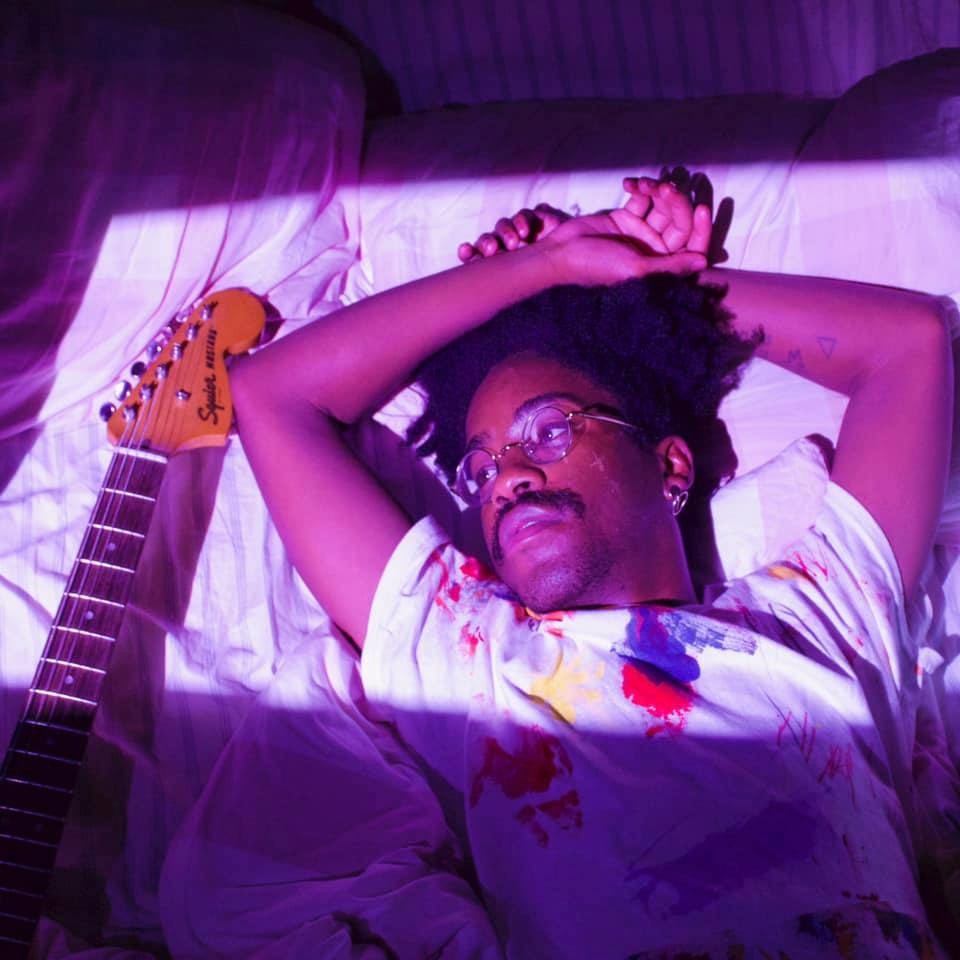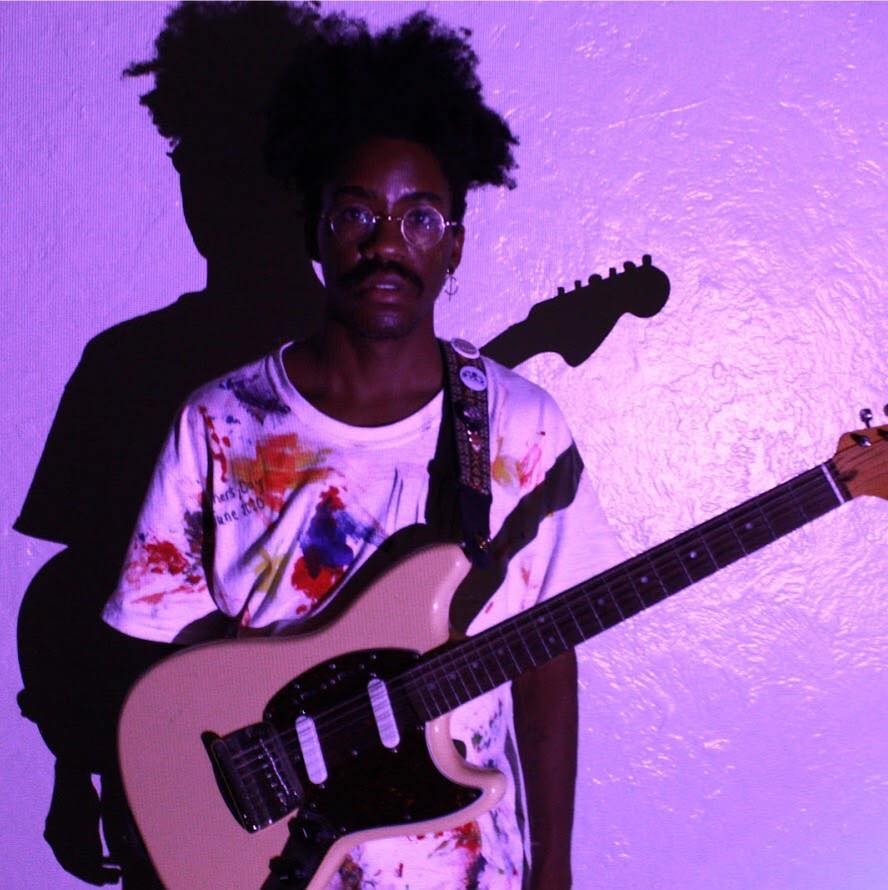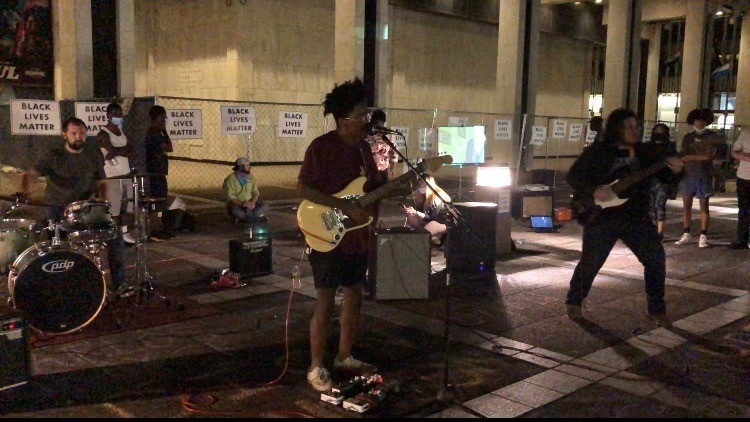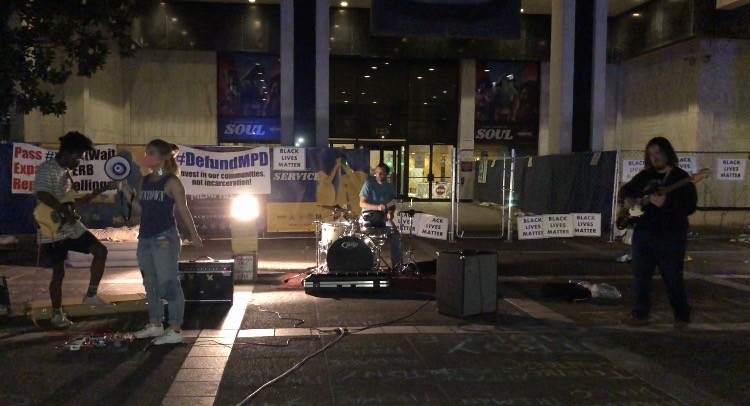Memphis-based indie rockers Blvck Hippie released their new single, “Bunkbed,” Friday, August 7th. The song is five minutes of frenzied post-rock, all urgency communicated on bent guitar strings. Bandleader Josh Shaw’s vocals sound frantic to escape the speaker system, as befits a track recorded in the midst of a pandemic-induced quarantine.
Blvck Hippie has kept busy these past months, recording a pair of singles at Sun Studios (the second is due in September), laying down a live video for Crosstown Arts’ Against the Grain series, and performing at the protests against police brutality at City Hall. “Now you can’t play shows, you have to think through everything and figure out how you want to get in front of who you want to get in front of,” Shaw tells me over the phone.

Blvck Hippie’s Josh Shaw
“We were able to record two songs at Sun,” Shaw says of “Bunkbed” and the forthcoming single. Earlier in the pandemic, “they do recordings, but they can’t do tours,” he explains. “So we got the opportunity to be there from 11 to 11.” The process, Shaw says, of recording music in the historic studio during the day, when it’s usually full of tourists from across the globe, was surreal. Not to mention a little daunting. “So many greats have been here. I hope we don’t suck,” Shaw says, laughing.
[pullquote-1-center]
By any measure, the new single definitely does not suck. In fact, it finds Blvck Hippie harnessing the melodicism of their debut EP in tandem with the energy of the group’s live performances. With “Bunkbed” Shaw rakes the listener over the emotional coals, and the band displays chops that blend elements of indie rock, power-pop, and post-rock, making a confident vehicle for Shaw’s plaintive delivery. The single already scored a positive review from Afropunk, who called it, “the feel bad song of the summer.”
With the exception of their time recording, Shaw says, “The only real way we’ve been playing live music recently is by playing protests.”

Shaw said he had already been to protests as a participant when a friend called him and asked him if Blvck Hippie would be interested in performing. Shaw was eager to back up his convictions with his art, and he understood how music might give protesters another source of strength. “The overwhelming feeling of consistently protesting some kind of inequality, it becomes very tiring on people,” he says. “Music is one of the things that can make everybody feel that everything is going to be okay.”
And, the singer says, everyone did their best to be safe and take precautions to mitigate the potential spread of the virus. People “kept to the bubble of who they came with,” Shaw says, noting that he and his drummer live together — and that it was nice to have enough distance on the makeshift stage that he didn’t have to worry about being hit in the head with a bass stock. Protesters wore masks and kept to their groups, Shaw remembers, and performers brought their own microphones. In the end, Shaw says, the cause is an all-important one.

Blvck Hippie perform at Memphis City Hall.
Shaw continues: “It’s really hard not to feel helpless and feel like you have no control over anything. Even to the point where it’s like I can’t control whether I live or die due to police brutality, or any of my family members or anybody I’m close to. It’s crippling the feeling of not having control,” he explains. “And being able to use the one thing that you have close to yourself, which is music, that’s all I love to do and want to do. And being able to use that as a voice for me and other people like me, made me feel like I had a little bit of control. It was an amazing feeling.”

The musician says it was affirming, too, to get to support Black live with his music. Shaw creates in a genre overwhelmingly populated by white artists, and he says, it felt good to associate his music with this cause. “Getting to play protests was really cool,” he says, “because the genre of music I do isn’t really considered by mainstream media outlets as being ‘Black.’ So it’s nice to be able to do something empowering Black people by playing the music I am. There were a bunch of little Black kids one time we played a protest. They were all in front being really excited, super jazzed up. It’s really cool getting to show them, ‘Hey, man, Black art is just anything a Black person does that’s art.’”